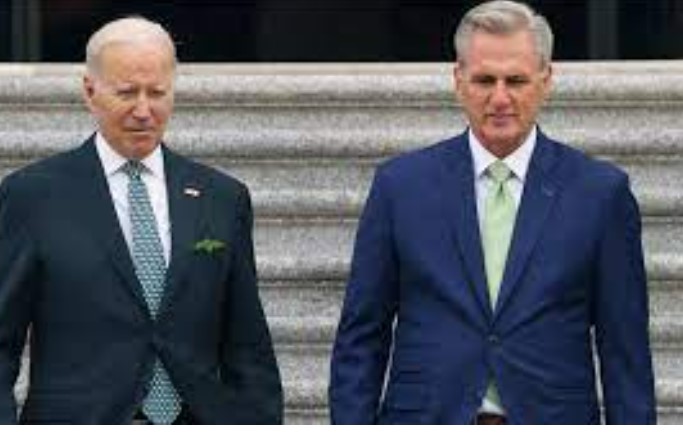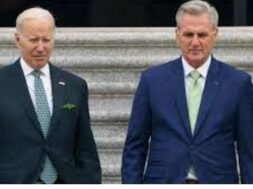
The $31.4 trillion conundrum: US Congress may approve the Biden-McCarthy deal on Wednesday
Virendra Pandit
New Delhi: Democrat US President Joe Biden’s “compromise” with Republican House Speaker Kevin McCarthy on raising the USD 31.4 trillion debt ceiling may have averted the danger of a looming American default after June 1 that would have sent world economies in a tailspin.
Similar situations have arisen in the past as well. But the two principal parties, after political posturing and muscle-flexing against each other, raised the debt ceiling each time and averted the ‘crisis’ at the last moment—believing it has scored some brownie points.
The debt ceiling was raised 74 times from March 1962 to May 2011, including 18 times under Ronald Reagan, eight times under Bill Clinton, and seven times under George W. Bush, reports said.
The media reported on Monday that, like their predecessors, Biden and McCarthy also reached a deal to raise the government’s debt ceiling beyond the current USD 31.4 trillion and avert a devastating default.
The divided US Congress is expected to approve the bipartite deal on Wednesday, May 31, just a day before the deadline.
After several days of long, difficult talks, the fresh deal allows both sides to claim a victory of sorts. While President Biden called it a “compromise”, Republican House speaker Kevin McCarthy described it as “worthy of the American people.”
The 99-page text was released Sunday night and the agreement will be subject to scrutiny and debate this week.
Some demands from both sides remained unacceptable, such as the elimination of certain tax loopholes requested by Democrats, and the repeal of clean energy tax credits sought by Republicans.
Officially called the Fiscal Responsibility Act of 2023, the proposed Bill provides for an increase to the debt ceiling of USD 31.4 trillion for two years. It means President Biden will crucially not need to negotiate it again before the November 2024 presidential election.
The bipartisan deal also limits curbs on federal spending that might please some Republicans but deny them the big cuts which Democrats would have balked at.
The deal has kept non-military spending unchanged for the 2024 fiscal year from this year and limits the increase by one percent for 2025.
The agreement retains the Biden administration’s plan to increase spending for the military and veterans in line with inflation as well.
It also pares back funds allocated for the expansion of the Internal Revenue Service (IRS). In 2022, the US Congress approved USD 80 billion for the IRS to boost tax enforcement. The debt ceiling agreement pulls back USD 10 billion to spend in other areas.
Besides, the deal withdraws some unspent funding that US Congress allocated for the coronavirus pandemic. A statement from McCarthy’s office said the deal would rescind “billions in unspent Covid funds” but did not specify.
Medicaid, the government’s health insurance program for the most disadvantaged Americans, also remains unchanged.
In a Republican ‘victory,’ however, the deal establishes work requirements for people who are receiving federal food assistance or on family welfare.
The deal is also set to raise the age from 49 to 54 years at which childless adults will be required to work to receive food stamps. As a concession to Democrats, the deal relaxes the requirements for veterans and the homeless.













